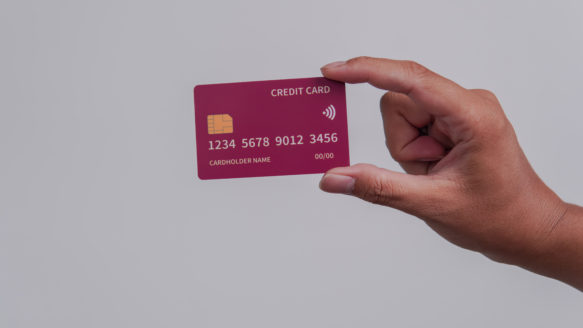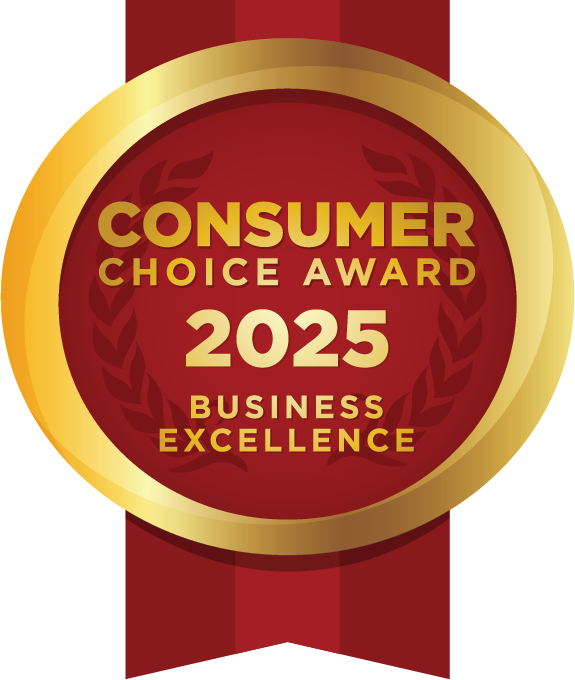
Thinking About Debt Consolidation? Read This Before You Apply
Debt consolidation can feel like the ultimate financial shortcut — one payment instead of nine? Lower interest rates? Less stress? Sign me up! But here’s the reality: Many people consolidate their debt the wrong way and end up in even worse financial shape.
Debt experts say that if you don’t have the right plan, consolidation can actually make your debt worse instead of better. If you’re thinking about debt and bill consolidation, it’s important to understand the common mistakes that can cost you thousands of dollars in the end — and how to avoid them.
Debt Consolidation Is a Powerful Tool — If You Avoid These Costly Mistakes
1. Choosing a Debt Consolidation Loan Without Comparing Interest Rates
Many people assume that rolling multiple debts into one payment will automatically save money. The truth? Some debt consolidation loans come with interest rates that are just as high — or even higher — than the 22% credit card rates you may be trying to escape!
Not all consolidation loans are created equal. Some lenders advertise “low monthly payments,” but those payments may be stretched over 10+ years, making the total cost much higher than expected. Others include hidden fees, origination charges, or prepayment penalties that quietly drive up costs. And while some loans are marketed as “low-interest,” the actual rates offered can vary significantly depending on your credit score. If the new loan isn’t substantially better than the debt you’re consolidating, you may not be saving money at all.
What to do instead:
- Compare multiple lenders before committing to a loan.
- Look for government debt consolidation programs like Alberta’s Orderly Payment of Debts (OPD), which caps interest at 5%.
- Read the fine print — some loans have hidden fees that make them more expensive than they seem.
2. Consolidating Debt Without Changing Your Spending Habits
A consolidated credit plan can make your monthly payments smaller — but it won’t solve the reason you got into debt in the first place. Many people feel relieved after consolidating and then fall back into the same spending habits — leading to new debt on top of the old debt. Without a real plan to change how you spend and save your money, consolidation can become a temporary bandage rather than a long-term fix.
What to do instead:
- Build an emergency fund — because unexpected expenses will happen. Even $10 or $20 a week adds up. Having a small cushion helps you avoid swiping your credit card every time life throws a surprise at you.
- Try the cash-stuffing method — because tapping your card feels painless (until the bill comes). Withdraw a set amount of spending money each week. When it’s gone, it’s gone — no sneaky extra purchases on credit.
- Recognize your spending triggers — because “I deserve this” is a fast track to more debt. Are you shopping when you’re stressed? Bored? Influenced by Instagram? The more aware you are, the easier it is to stop.
- Automate your debt payments — because willpower isn’t enough. If making extra debt payments is optional, you’ll probably skip them. Set up auto-payments on payday, so your debt actually goes down.
- Make a budget that actually works — for your real life, not some fantasy version. Instead of setting a grocery budget that’s too tight to last the month, track what you actually spend and adjust from there. A budget should help you, not punish you.
Debt consolidation is only a tool — if you don’t change the habits that got you into debt, you’ll end up right back where you started (or worse).
3. Only Paying the Required Payments on Your Consolidation Loan
A debt consolidation loan can simplify your payments, but it doesn’t eliminate your debt — and if you only pay the minimum required, you could end up paying far more in interest over time. Many borrowers focus on the immediate relief of a lower monthly payment without realizing that stretching out repayment over such a long time can cost them thousands.
Instead of treating a consolidation loan as a long-term commitment, it should be a stepping stone to financial freedom. Paying only the minimum each month keeps you in debt longer, increases interest costs, and prevents you from making real financial progress.
What to do instead:
- Shorten your repayment timeline — Instead of opting for a 10-year loan, choose a 3- to 5-year plan if possible. This reduces overall interest costs and helps you become debt-free faster.
- Increase your monthly payments — Even an extra $50–$100 per month can shave years off your repayment period and save you thousands in interest.
- Use windfalls wisely — Tax refunds, work bonuses, or extra income should go toward your debt instead of being spent elsewhere as “free money.”
- Use a loan calculator to strategize — Plug your numbers into a calculator to see how different repayment approaches impact your timeline and total cost.
4. Falling for “Too Good to Be True” Debt Relief Scams
Some companies promise to erase your debt or cut it in half overnight — for a hefty upfront fee. These scams often target people who are desperate for a quick fix.
Red flags to watch for:
- Claims that they can “eliminate your debt” without repayment.
- High-pressure tactics telling you to “act now” before an offer disappears.
- Upfront fees before providing any real service.
What to do instead:
- Only work with reputable, government-approved programs like Money Mentors’ OPD program in Alberta.
- Check online reviews and Better Business Bureau (BBB) ratings before signing up for any debt program.
- Avoid companies that demand large upfront payments for debt settlement.
5. Ignoring Government Debt Consolidation Programs
Many people think the only way to consolidate debt is by getting a loan or using a balance transfer. But government-supported programs can offer lower interest rates and structured repayment plans that might be a better fit.
For example, Alberta’s Orderly Payment of Debts (OPD) program lets eligible people combine debts into one fixed monthly payment at a 5% interest rate — far lower than most credit cards or even consolidation loans. Unlike a regular consolidation loan, OPD isn’t new credit to pay off your debts — it’s a structured plan to help pay off what you already owe.
What to do instead:
- Compare all your options before signing up for a high-interest loan that could end up costing you more.
- Look into programs like OPD, which may be a lower-cost way to consolidate debt.
- Talk to a non-profit certified financial counsellor to see if a government debt consolidation program makes sense for you.
Consolidation Can Work When Done Right
Debt consolidation can be a smart strategy — but only if it actually saves you money, stops the debt cycle, and fits your financial situation.
Ready to take control of your debt?
Call 1-888-294-0076 to chat with an Certified Financial Counsellor at Money Mentors today.








